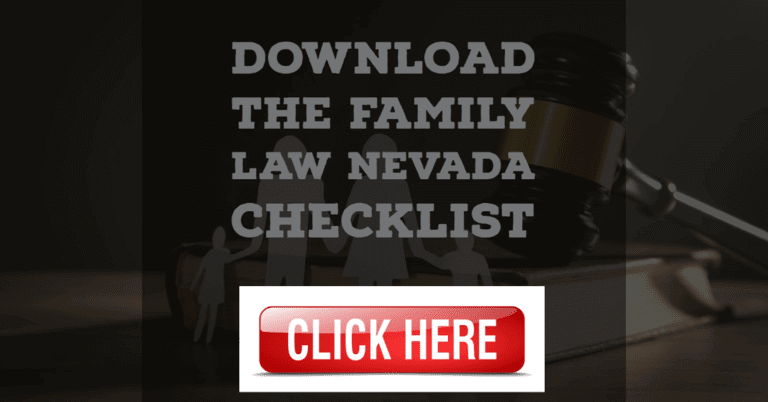Would you ask a stranger you only knew for a few minutes to decide who should have custody of your children or how often you should see them or what holidays you should have with them? If you are involved in a custody dispute, and your answer to this is “no” (and it should be) then you will want to attend family court mediation.

Mediation has become more and more popular as a way to resolve divorce cases. When your divorce case involves child custody, mediation is mandatory. Absent a compelling reason, most family court judges will order the parties in a custody dispute to attend mediation so the parties can resolve their differences rather than leaving it to a judge.
You may be asking “if I’m in court, why cant the judge just make a decision about child custody?” Remember our first question – do you really want a stranger, the judge, making decisions about your kids? You know your children. You know what is in their best interests. You know what visitation schedule will work and what holidays are important. If you leave these decisions to a judge, you are asking a stranger to tell you and your spouse how to raise your kids.
Judges order mediation because they assume, as the parents, you and your spouse are capable of reaching agreements on custody, visitation, holiday schedules, vacation, communication, transportation and other custody issues without the court intervening. It is only when you and your spouse have tried to resolve these issues and can’t that the judge will get involved.
We have put together this article on family mediation to offer some basic guidelines about the mediation process in child custody cases.
Confidential
Everything that occurs during mediation is fully confidential. The mediator will not tell the judge that your spouse was unreasonable or that you wanted every other week but your spouse only wanted you to have visitation on Tuesdays. Because of this confidentiality, the mediator may not be brought into court. Also, you cannot use any proposals made in mediation as evidence against your spouse in Court. The fact that mediation is confidential should allow you and your spouse the opportunity to discuss openly and honestly a custodial arrangement that will work for your children without the fear it will be used against you in Court.
Fairness
The mediator does not represent either party and will not take sides on any particular issue. The mediator is there to make sure the process is fair and that both parties are heard. A good mediator will be able to take the information you provide and offer suggestions or alternatives in an effort to get an agreement that works for everyone. Both parties should feel comfortable with any agreement reached.
Honesty and Truthfulness
Mediation only works if both parties are honest and truthful about the case. If you are only asking for primary custody because you want the other side to pay child support, mediation will not work for you. It is unlikely the other side will agree and chances are you are not being honest about the other parties’ parenting and relationship with your children. If a mediator believes that you are not being honest, the mediator may decide to terminate the mediation.
Custody
Typically the mediator will try to ensure that both parents have frequent and continuing regular contact with their children. The mediator will also want to maintain a positive environment for the children in which both parents are flexible and foster a relationship with the other parent. It is important that both parents are respectful of the other and that they never make negative remarks about the other parent.
Commitment to Success
In order for mediation to succeed, spouses must be committed to working towards an out-of-court resolution. The parties must cooperate and focus on reaching resolution rather than personally attacking each other. The parties must be respectful, listen to each other, and not interrupt one another.
Further Reading
Our lead attorney, Molly Rosenblum Allen, Esq., has diligently crafted a series of comprehensive resources to support you through various aspects of family law. Whether you’re navigating the complexities of custody agreements or seeking information on specific rights, these resources provide insightful guidance and legal expertise.
-
Las Vegas Child Custody Attorney: Expert legal advice for custody-related concerns in Las Vegas. Learn More
-
Fathers’ Rights: A dedicated resource empowering fathers with the knowledge to protect their rights. Discover How
-
Supervised Visitation: Essential information on supervised visitation scenarios. Understand Your Options
-
Changing Custody Agreement: Guidance on modifying existing custody agreements. Explore Changes
-
Grandparents’ Rights in Nevada: Specialized information for grandparents seeking rights. Know Your Rights
-
Long Distance Co-Parenting: Strategies for managing co-parenting across distances. Get Insights
-
How a Mother Can Lose a Custody Battle: Critical information for mothers in custody battles. Stay Informed
-
Custody Battle Tips for Nevadans: Tips specifically tailored for Nevadans in custody disputes. Learn Strategies
-
What Not To Say In Child Custody Mediation: Advice on navigating child custody mediation. Avoid Mistakes
-
Cost of a Custody Lawyer: Understanding the financial aspects of hiring a custody lawyer. Budget Wisely
-
Types of Custody: An overview of different custody types to consider. Explore Types
-
At What Age Can a Child Decide to Stop Visitation: Insight into the age when a child can make visitation decisions. Know the Age


Offsite Resources You May Find Helpful
Here are seven resources that can provide more information and support for those interested in family mediation:
- American Bar Association (ABA) – Section of Dispute Resolution: The ABA’s Dispute Resolution section offers resources, training, and information on mediation and other forms of dispute resolution.
- Association for Conflict Resolution (ACR): ACR is a professional organization dedicated to enhancing the practice and public understanding of conflict resolution, including family mediation.
- Mediate.com: This site provides articles, resources, and a directory of mediators, with a specific section dedicated to family mediation.
- National Family Mediation (UK based): Although this is a UK-based organization, it provides a wealth of information about the mediation process in a family context.
- Family Mediation Council (UK based): Similar to the National Family Mediation, this UK-based resource provides information about family mediation, including tips and a find-a-mediator service.
- Avvo – Mediation Lawyers: Avvo provides a directory of mediation lawyers, along with user ratings and reviews, who can assist in cases involving family mediation.
- Justia – Mediation Lawyers: Justia offers a directory of lawyers who specialize in mediation and alternative dispute resolution, including family mediation.

What’s Next?
Are you looking for a family law attorney in Las Vegas?
Do you want an experienced team that can handle all of your legal needs?
The Rosenblum Allen Law Firm is the best choice for reliable, trustworthy care. With over 25 years of combined experience in family law, we are experts who will work tirelessly to make sure your needs are met and everything goes smoothly.
If you need help with divorce papers or child custody issues, don’t hesitate to call us today at (702) 433-2889.
Our friendly staff will answer any questions you have and get started on finding solutions right away!
So if life throws a curveball at your family’s well-being, know that we’re here to assist every step along the way – from start to finish!
Call us now so we can begin helping resolve matters quickly & efficiently — (702) 433 2889


